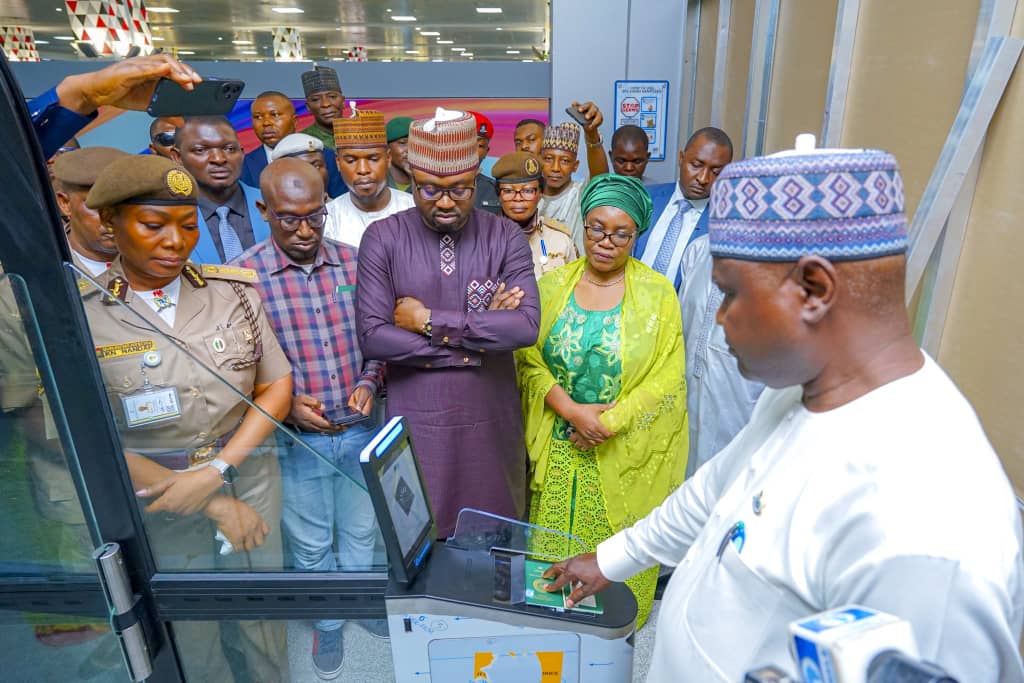Poverty in the midst of wealth
By Babatunde Ayedoju
|
The Nigeria Extractive Industries Transparency Initiative ((NEITI) recently said that Nigeria earned $741.48 billion from oil and gas sales between 1999 and 2020, a period of 21 years.
The Executive Secretary of the organisation, Dr Ogbonnaya Orji, made the assertion at a stakeholders’ engagement forum on the implementation of the Petroleum Industry Act (PIA) in Abuja. He further revealed that NEITI had conducted and published 25 cycles of audit reports in the oil and gas sector, covering the same period.
Orji said from the reports that the amount accrued to the Nigerian government from the oil and gas sector during the period, stressing that NEITI had recently embarked on an expansion of its operations to support government’s revenue growth plan.
“The 2021 oil and gas sector audit is currently ongoing and will soon be released. This is guided by a five-year strategic plan (2022-2026) which will enable the agency to establish a presence and operate at sub-national levels to support government’s revenue growth plan and resources mobilisation,” he explained.
He noted that NEITI’s reports had led to the recovery of several billions of dollars by government from companies operating in the oil and gas sector. According to him, the recommendations made by NEITI in its reports also paved way for tremendous reforms in the sector.
Meanwhile, last month, the National Bureau of Statistics (NBS) released a report that 133 million Nigerians, representing 63 percent of the population, are living in poverty, with Sokoto State having the highest rate – 91 percent.
The figure was presented during the launch of Nigeria’s Multidimensional Poverty Index (MPI) Survey in Abuja, based on a survey that was conducted by the National Bureau of Statistics (NBS), the National Social Safety-Nets Coordinating Office (NASSCO), the United Nations Development Programme (UNDP), the United Nations Children’s Emergency Fund (UNICEF) and the Oxford Poverty and Human Development Initiative (OPHI).
According to the report, the measure used to calculate the figure was based on Multidimensional Poverty Index (MPI) with five components of health, living standard, education, security and unemployment.
The report noted that multidimensional poverty is higher in rural areas, where 72 percent of people are poor, compared to 42 percent of people in urban areas. Approximately, the Bureau said that 70 per cent of Nigeria’s population live in rural areas, yet these areas are home to 80 percent of poor people.
“In Nigeria, 40.1 percent of people were poor, based on the 2018/19 national monetary poverty line, and 63 per cent are multidimensionally poor according to the National MPI 2022,” it said.
Also, poor people experience over one-quarter of all possible deprivations. Moreover, both the incidence and intensity of poverty at 62.9 percent and 40.9 percent respectively exceeded the 26 per cent poverty cut-off threshold. The report stated that over half of the 200 million population who are multi-dimensionally poor cook with dung, wood, or charcoal, rather than clean energy.
The report, the first poverty index survey published by the statistics bureau since 2010, said that 65 percent of the poor (86 million people) live in the North, while 35 percent (nearly 47 million) live in the South.
The report, among other things, said two-thirds of children aged 0-17 are poor and accounted for 65 percent, compared to 58.7 percent of adults, adding that “This gives rise to the sobering reality that over half of all poor people are children”.
The report also noted that 29 percent of all school-aged children are not attending school while 94 percent of all out-of-school children are poor.
According to an analysis from a Nigerian tabloid last month, every minute, more than six Nigerians enter the extreme poverty bracket. It also cited a World Bank 2022 Poverty and Prosperity Report that says Nigeria contributes three million people to global extreme poverty, while the country is “home to a large share of the global extreme poor.”
Meanwhile, Nigeria also ranked 103 out of 121 countries in the 2022 Global Hunger Index (GHI), a position that signifies the nation has a level of hunger that is serious. The Global Hunger Index was jointly published by the German-based Welthungerhilfe and Dublin-based Concern Worldwide to mark this year’s World Food Day.
The report, which ranks countries by ‘severity’, gave Nigeria a score of 27.3 – a hunger level falling under the ‘serious’ category.
Reacting, Dr Chris Ofonyelu from the Department of Economics, Adekunle Ajasin University, Akungba-Akoko explained that one cannot always rely on budget outlay for any tangible estimation.
He explained that while the figure released by the federal government agency may not be totally accurate, it is also possible that the money was not evenly distributed across critical areas of need.
In his words, these two factors make Nigeria’s poverty status in the face of available resources not unexpected. He said, “Given these two conditions, one is not worried about the terrible state of poverty in Nigeria.”
Dr Bayo Fasunwon from the Department of Political Science, Adekunle Ajasin University, Akungba-Akoko noted that the earning needed to be situated side-by-side expenditure. He pointed out that Nigeria recorded budget deficit during the years that the said amount was earned from oil and gas sales, adding that the government still had to borrow in order to settle some expenses.
The political economist blamed Nigeria’s situation on misplacement of priority and mismanagement of resources. He said that from 1999 to 2007, election, road infrastructure, subsidy payment and later security took the lion share of the Nigerian government’s spendings.
He, however, recommended that the Nigerian government should reorganise itself and engage in developmental projects that could make Nigerians more productive and increase the Gross Domestic Product (GDP).
In the words of Dr Edamisan Ikuemonisan from the Department of Agricultural Economics, Adekunle Ajasin University, Akungba-Akoko, Nigeria has not been fortunate with a leader who understands how to manage a wealthy country like ours. According to him, this inadequacy is responsible for the pervasive poverty being witnessed in Nigeria.










